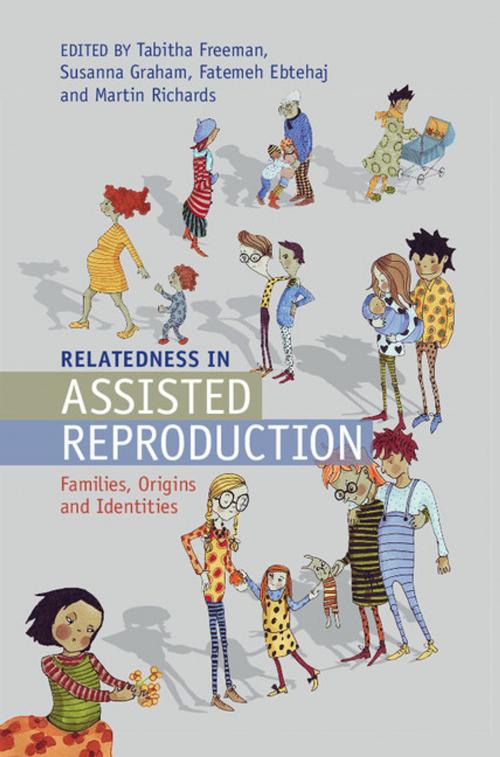Relatedness in Assisted Reproduction
Families, Origins and Identities
Nonfiction, Health & Well Being, Psychology, Developmental Psychology, Science & Nature, Science| Author: | ISBN: | 9781316054024 | |
| Publisher: | Cambridge University Press | Publication: | August 14, 2014 |
| Imprint: | Cambridge University Press | Language: | English |
| Author: | |
| ISBN: | 9781316054024 |
| Publisher: | Cambridge University Press |
| Publication: | August 14, 2014 |
| Imprint: | Cambridge University Press |
| Language: | English |
Assisted reproduction challenges and reinforces traditional understandings of family, kinship and identity. Sperm, egg and embryo donation and surrogacy raise questions about relatedness for parents, children and others involved in creating and raising a child. How socially, morally or psychologically significant is a genetic link between a donor-conceived child and their donor? What should children born through assisted reproduction be told about their origins? Does it matter if a parent is genetically unrelated to their child? How do experiences differ for men and women using collaborative reproduction in heterosexual or same-sex couples, single parent families or co-parenting arrangements? What impact does the wider cultural, socio-legal and regulatory context have? In this multidisciplinary book, an international team of academics and clinicians bring together new empirical research and social science, legal and bioethical perspectives to explore the key issue of relatedness in assisted reproduction.
Assisted reproduction challenges and reinforces traditional understandings of family, kinship and identity. Sperm, egg and embryo donation and surrogacy raise questions about relatedness for parents, children and others involved in creating and raising a child. How socially, morally or psychologically significant is a genetic link between a donor-conceived child and their donor? What should children born through assisted reproduction be told about their origins? Does it matter if a parent is genetically unrelated to their child? How do experiences differ for men and women using collaborative reproduction in heterosexual or same-sex couples, single parent families or co-parenting arrangements? What impact does the wider cultural, socio-legal and regulatory context have? In this multidisciplinary book, an international team of academics and clinicians bring together new empirical research and social science, legal and bioethical perspectives to explore the key issue of relatedness in assisted reproduction.















